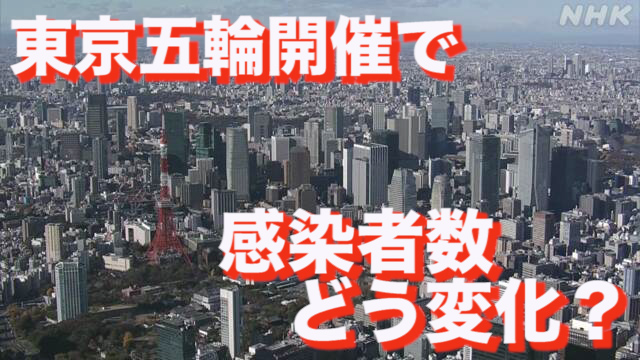A group of economists at the University of Tokyo simulated the impact of holding the Tokyo Olympics on the spread of the new coronavirus, and hoped that the number of people would increase during the Games in order not to increase the number of infected people in Tokyo after the Games. We have summarized the results that we need to suppress as much as possible.
This simulation was conducted by a group of Associate Professor Taisuke Nakata and Specially Appointed Lecturer Daisuke Fujii of the University of Tokyo Graduate School of Economics based on the data up to the 16th of this month.
The group assumed that the current state of emergency was extended until mid-June, with domestic vaccinations progressing at a rate of 600,000 per day.
In addition, it was assumed that 105,000 people from overseas, including athletes and related persons, entered the country during the tournament, and half of them had been vaccinated.
As a result, the average number of infected people in Tokyo per day, which is increasing due to direct causes from overseas players and related parties, is only about 15.
On the other hand, if the number of people infected increased by 10% due to going out for support or active economic activities during the tournament, the number of infected people in Tokyo per day will be 2024 in September, and the tournament will not be held. The result was an increase of 1407 people compared to the case.
In addition, if the number of people increased by 2%, the number of infected people per day would increase by 362 in October.
This estimation does not include the effects of the mutant virus confirmed in India, which is considered to be highly infectious.
Associate Professor Nakata said, "If you are going to hold the Olympics, it is very important to take measures to thoroughly control the flow of people. If you fail to do so, the infection will spread rapidly and it may lead to another declaration of emergency, so it is medium to long term. It's not good for the economy from a point of view. "

